|
Countless non profit organizations are working to stop plastic pollution, spending great time and effort to recreate things that have already been done by other similar groups. Find out why. The other day, one of our LitterHero local group leaders said he was going to present at his daughter's school, and asked me if we had any support material for primary school workshops. Although we currently don't have any material for the age range he was looking for, I said that a local zero waste partner group would certainly have some helpful slides or documents he could use - especially since the group is run by primary school teachers! I was surprised and saddened when I was told that although they did in fact have a presentation for primary school kids, they couldn't share it with our organisation, as it was proprietary material... Consider this for a moment: A non profit group established to help prevent litter and plastic pollution - and one rooted in primary school education, no less - was telling us that its educational resources could not be shared with another non profit group that shares the same objective. If we look at powerful industry groups and lobbies, like those associated with petrochemical and plastics, we find strong unity of purpose and a consistent message that is spread far and wide. Such industries don't need to fear the growing number of highly fragmented zero waste and anti plastic pollution organisations. As long as organisations like ours are divided, industry will conquer! "Consider this for a moment: A non profit group established to help prevent litter and plastic pollution was telling us that its educational resources could not be shared with another non profit group that shares a common objective." I recently attended an excellent conference hosted by the Oceano Azul Foundation, and collected 3 buzzwords that kept repeating during the event: "Collaboration - Community - Sharing". Every organization that was present at the conference mentioned that they found collaboration in some for or other was essential, yet it is not what we frequently see in practice.
It makes all the sense to charge any profit making entity for presentations, workshops or other time consuming activities that can help such businesses improve their corporate behaviour or image. But we are almost all NON-profit groups in this sector, so it only makes sense to actively benchmark existing best practices, share documents and support material and help each other spread the zero waste mindset, without asking for anything in return. Many of the individuals who initiate non profit and social or environmental action organizations are very driven and motivated to create bold brands that bear their personal mark. One of the driving factors is a strong ego. We need this ego to keep us going during the toughest moments, in what seems to be an endless and sometimes futile struggle against the odds and the titans of industry. But we cannot let our egos become bigger than our common cause: ending waste and stopping plastic pollution.
2 Comments
With so many urgent environmental issues at hand, why should we be so concerned about litter? Because it's the manageable tip of an environmental iceberg and here's how you and I can deal with it today.
Small actions with a BIG impact
Is picking up a piece of litter at a time even worth the effort? Research says it absolutely is. If your own actions can reset a situation like the one mentioned above, by fixing the broken window, then you have leveraged your litter picking actions exponentially. If you have done nothing more that spread the idea that we all have a stake in keeping our environment in good shape, as other people looked on bemused, then perhaps you will have taken the next massive step to conquering hearts and minds. Hearts & Minds Part of the act of picking litter in public aims to make a social statement, or in fact a number of statements:
The solitary act of picking litter from time to time will have a small positive effect compared to the massive effect that comes from conquering hearts and minds and starting to shift the mindset that has allowed litter and waste to become culturally acceptable. Paradigm Shift The ultimate goal of the #LitterHero movement is the really focus on ending Waste in all forms of human misuse of resources. By pausing to collect and consider the quantity and nature of the litter that surrounds us in modern societies, we can stop and realise that it is the materialisation of massively wasteful practices, and that we have the technological means to live near waste free lives today and no extra cost. The final realisation is that we are not mere consumers, at the mercy of whatever products are pushed our way, or victims of greedy corporations and the careless ways of other people. Instead, consider that you and me can choose to be either part of the problem, or a hero helping solve the problem. Is it even worth getting started on local litter clean up activities when globally, mounting trash is such a massive problem? Yes it is, and here's why: At times we are bombarded with so many negative statistics, articles, videos and comments relating to the state of the plante, that it all seems just too overwhelming. It happens to me often, but then I think "every single piece of litter on the street, in the forest and in the ocean was put there by someone not entirely unlike me. The same way it got there, it can be retrieved - piece by piece."
Start Small Is there a lot of work to be done? Certainly. Is it worth the time and effort? Unquestionably. This is our planet, our home, our street and our own back yard. It's easy to post angry and frustrated comments on social media, but ultimately it's up to you and me to take action to make things better. Think Big The great news is that if even a few people start taking direct action such as joining local clean up initiatives, talking to and pressuring municipalities and telling their friends and family that every one of us can have an immediate and direct impact, then we can effect change on a Global scale. It all starts with me & you! Good Citizenship Wikipedia defines this as when one properly fulfills his or her role as a citizen. There are many opinions as to what constitutes a good citizen. Theodore Roosevelt said, "The first requisite of a good citizen ... is that he shall be able and willing to pull his weight." A great way to do that is to get involved with your local community. Beyond Litter Why focus on litter when there are so many even more pressing environmental concerns? It's a great question. One of the reasons I have chose to focus on litter is that I feel it's something so very easy to control, without even changing our lifestyle, just our habits, and if we are persuasive, the habits of our friends and family too. But it goes beyond the local manifestations of piled up kerb side trash; if we no longer accept such sights, we start to grow more aware of our surroundings and our impact on our environment, natural and man-made. Then we can start to shift our current paradigm and all live with more quality and abundance. It is better to start young, but it is never too late to pick up the litter clean up habit. Here are some thoughts on how! Written by Merran Van Der Tak Retired marketing queen, lifelong smoker and full time #LitterHero. After she retired in her late-60s, my mother-in-law started jogging every morning. There was a small woodland park behind her house with a trail along the stream. Her route took her through the park then up into “embassy row”, the part of Washington DC where many embassies and ambassadors' residences were clustered.
Shocked by the amount of litter she saw everywhere on her first jog, she took a large bag with her the next day and picked up litter as she went along – not only in the woodland but also on the streets and pedestrian areas around the embassies. The bag filled up quickly. She carried it with her until she found an appropriate place to dispose of the litter. Her daily “jog” became a stop-start clean-up exercise. Until she was in her mid-80s and no longer mobile, she jogged every morning and always took a bag for collecting litter. Her jogging became slower as she aged – and the bag felt heavier as each year passed – but she persisted. It was pleasant when we visited, to be able to stroll in the pristine woodland. Needless to say, we helped to keep it clean. My husband and I continued the habit when we retired to Portugal and began to walk (or, in his case, to jog) in the hills of Sintra. A bag or two for litter always went along in the back-pack. We picked up as much as we could carry as we followed the trails through the forest. The hills here are much much bigger than the little park behind my mother-in-law's house, and our efforts here are just a drop in the bucket. But if each person carried his or her own litter home instead of dropping it, each of them would hardly notice the extra quantity or weight in their pockets. Instead, with my scrawny 45kg, I end up lugging a bag for kilometres until we reach a disposal bin. And the trails through the hills are still full of litter. Perhaps we do not go out walking often enough. But where are all the other litter-collecting walkers? Obviously, we cannot pick up all the building rubbish and discarded appliances which people drive into a wilderness area to dump waste. The logic of dumping waste in such a way defeats my logic. Why drive so far on rough trails – perhaps in the dark – when there are places and systems for disposing of it properly, accessible on nice paved roads? Yes, there is a charge for disposing of some items but it must be less than the cost of fuel and wear-and-tear from driving into the wilderness. In many countries, school groups and scouts are organised (with protective gloves, proper instruction and supervision, etc.) to go out collecting litter in scenic areas. It probably beats sitting in a class-room but they are still learning something – they are often shocked by the horrible things which they find. Hopefully, it will make them think twice before they drop their litter in the future. It might be too late to educate some of the older folks about proper disposal of litter. But, if youngsters can be taught (and enlisted to help to clean up), the next generations might be able to jog through their retirement on pristine trails without stop-start weight training at the same time. If you believe in a globalized world that what goes around comes around, then good citizenship is a no-brainer. Here's a list of 10 things you can do right now to be a better citizen!
A web search for Good Citizenship comes up with about 5,580,000 results. My definition is simple and I try to use it to guide my decisions and day to day life. It's one of the very reasons I decided to pursue the #LitterHero ideal and put this website together! I don't always succeed, but it's a kind of way point that I can always refer back to. Essentially, the idea is an ancient one: do to other what you would have done to yourself; in this case, I like a tidy back yard, a clean street, a pure environment enjoy and clean oceans for myself, my family and friends. To achieve these lofty goals all you or I have to do is consider other people as we go about our own lives. You don't have to believe in karma to realise that what you do will have an impact on other people. If your impact is positive you will build good things around yourself but if your impact is negative, you will destroy and harm yourself and others. You can have your cake and eat it too, so long as you don't leave the box on the side of the road. So here's a list of 10 things you can do right now to be a better citizen, starting from the 4th grade up.
Source Ms. Sanches Class Mattresses take up a good amount of space in your home, and unfortunately, in the landfill. However, when it’s time for a new one, these large home products don’t need to become unsightly waste - Find out how! Written by Sarah Johnson Zero Waste Advocate working for Tuck, a community devoted to improving sleep hygiene, health and wellness through the creation and dissemination of comprehensive, unbiased, free web-based resources. You have options that will keep your mattress out of the landfill. With a two-fold approach to reduce waste and buy environmentally-friendly mattresses, you can make a difference. 1. Donate the Old Many national and local charity or thrift organizations accept mattress donations. Be sure your mattress is stain, tear, and odor free. If you live in an area with bed bugs, mattress donations may not be accepted. To save yourself the hassle of loading and hauling your mattress, call ahead to make sure it will be accepted. Do NOT leave your old mattress behind a charity store after hours. You may be leaving them with the problem of disposal and most likely it will end up in the landfill. 2. Look Up Recycling Facilities The parts and components of many different types of mattresses can be recycled. For example:
3. Think Outside the Box Mattresses are full of components, from braiding and buttons to nails and screws that can be used for other projects. Innersprings can be used to make wreaths or transformed into a picture holding room divider. Memory foam can be used to make a dog bed or chair cushions. Wood slats come in handy for all kinds of home projects. If you’re up to dismantling the mattress yourself, with a little creativity, you can probably use most of the components around your home. 4. Choose an Environmentally-Friendly Mattress The truth is that there’s no mattress that’s 100 percent green, organic, or environmentally friendly, but there are some that come close. All-natural latex mattresses are derived from the sap of the rubber tree. After the sap goes through a series of manufacturing processes, it makes a mattress that’s both durable and comfortable. These mattresses are biodegradable, leaving behind a white residue. However, latex mattresses can be expensive. If you need something more affordable, look for mattresses made with organic components through environmentally-friendly practices. Organic cotton and/or wool covers, plant-based foams, and fire socks instead of chemical flame retardants produce less waste and make disposal easier.
To help you find an environmentally-friendly mattress, look for certifications from independent organizations that monitor environmental impact like:
A mattress doesn’t have to become waste. With a few phone calls and research, you can dispose of the old and find a new one that will cut down on your environmental footprint. Cigarette filters are not as bad as nuclear waste, but they take seven years to bio-degrade. In the words of a lifelong smoker, here's how you can make a bad habit into a habit that's not so bad for the planet! Written by Merran Van Der Tak Retired marketing queen, lifelong smoker and full time #LitterHero If you are a lifetime smoker, as I am, quitting can be difficult.
But it should not be difficult to see that cigarette ends are litter. Just look around the entrances to buildings (where people cannot smoke inside), or in parking areas – even in scenic places – where people have decided that their car ash-tray is full. Take a look at your own ash-tray or around the places where you usually smoke. Cigarette filters are not as bad as nuclear waste, but they take around seven years to bio-degrade. Some of our cigarette ends might stay around longer than we older smokers do. There are cases where fish have choked to death on them - at least that stops them from getting hooked, I suppose. Smokers already suffer social stigma. Cigarette ends everywhere just make it worse – another reason for non-smokers to think that we are low-life. I am a heavy smoker. It is more than 40 years since I dropped a cigarette end anywhere except in a proper receptacle. If I am far from receptacles, I dispose carefully of any burning ash and residual shreds of tobacco, then the filter goes into the plastic around the lower part of the cigarette packet or even into my “butt pocket”. No, they do not make my clothes smell, although that might depend on the brand and how carefully I remove the shreds of tobacco. For longer outings, I carry a portable ash-tray with lid – there are lots of options available, even a little plastic bag would do. These days, there are even start up companies producing pocket ashtray, I rather like these from Portuguese non profit Biataki. If dog-walkers are required to collect their dogs' waste, why not cigarette smokers? Cigarette ends are litter – don't drop them. Please! Instead, why not help pick them up, take a photo and share it today with the hashtag #MicroPark is the idea of turning unused, underused or misused spots of land in urban or suburban areas into small, inexpensive and very low maintenance parks for people to enjoy. The concept came about as an idea to help combat fly-tipping, and here's how it works. What?
We are faced with constant and ever increasing municipal problems due to fly tipping / illegal waste dumping, as well as persistent littering. The problems not only affect municipal waste management but gradually all tiers of local (and national) quality of life. The upstream solution is in theory very simple: reduce or eliminate waste material flow by reducing, replacing or eliminating excessive packaging. Until such practices are broadly implemented by manufacturers, the tangible waste problem lands squarely on municipal streets. This suggestion focuses mostly on the waste management side, although a short term benefit will be raised environmental awareness. Why? Why my concern with visible waste dumping? I think the disrespect and disregard for our shared environment is also a symptom of larger social ills: littering begins a vicious cycle once it becomes accepted - if a site is already dirty or badly treated, what is the harm in throwing more garbage there? I believe this proposal presents an actionable outline for any municipality that has the desire to improve quality of life, regardless of material resources. How? In order to encourage better social habits, I propose the creation of small, low cost micro parks that can be created and maintained using voluntary labour or unemployed locals, under the management or with the approval of the municipal services. The idea is to create on the sites of habitual fly tipping / illegal dumping, a small green area - a micro park - composed of inexpensive materials such as gravel, pine bark, a bench, shrubs or aromatic herbs for example - with very low cost of implementation and maintenance, to discourage the dumping of waste and at the same time occupy these spaces with a small oasis that will enhance the quality of social and environmental life. In practical terms this is an opportunity to employ volunteers and unemployed in terms of manpower, as well as an opportunity for branded corporate sponsorship from local hardware stores in regards to the materials for the construction of such micro parks. On other hand, in order strengthen the deterrent against illegal dumping and reduce the recurrence of habitual offenders, low cost, remote automatic video capture (such as motion activated wildlife cameras) can be employed. Otherwise it is almost impossible to detect and punish offenders. Finally, an initiative like this would have to be supported by local education campaigns in schools, public spaces and media (TV, radio, newspapers, social media). If converting habitual fly tipping and litter dumping sore spots into low cost and near zero maintenance urban gardens sounds so crazy it might just work, why not get involved? Here's an idea to improve the municipal environment, public health and quality life at very low cost. Now is your chance to win a full suite of brand new, official #LitterHERO wear! And the best part? It's all song and dance! Have you got what it takes? With Earth Day fast approaching, I took the plunge and ordered a whole brand new set of #LitterHERO wear, including a 100% cotton T Shirt with front and back prints, a branded, lightweight cap and a go anywhere badge. I have also been feeding the idea of a Litterhero pastiche jingle based on a number of popular pop songs, such as "We don't need another hero"... "You can be a Litter Hero...", you get the idea! So why not tie these two things together and run a little contest? Think you have what it takes? If so, here are the rules:
Local events to aim to raise awareness, build community and clean up a local street, park or neighborhood. Join or start one today, get involved! Cleanup events are one of the most powerful ways of spreading a positive message and being an actual Litter Hero. Whether an event is attended by 2 people or 200 people, the statement is clear:
"We have a litter problem here, and together we can make this part of the world cleaner". LitterHero clean up events are design for maximum positive impact and minimum hassle. We do this by limiting numbers to around 30 people max and scheduling at a time when people with children can also attend, usually Saturdays around 10:30 am. Another powerful driver is that we like to keep our events very short! 30 minutes of clean up time is enough for even a small group to make a big impact and also keep people of all ages engaged and more importantly, increase the desire to clean up even more! In a nutshell, here's the secret sauce:
If you would like to host your own litter clean up events through a local #LitterHero group or on your own, here is a good article to help you get started. |
AboutFind and share here news and information on best practices for taking direct action to combat and prevent waste! Tags
All
|
How To |
Projects |
|
©2023 LitterHero
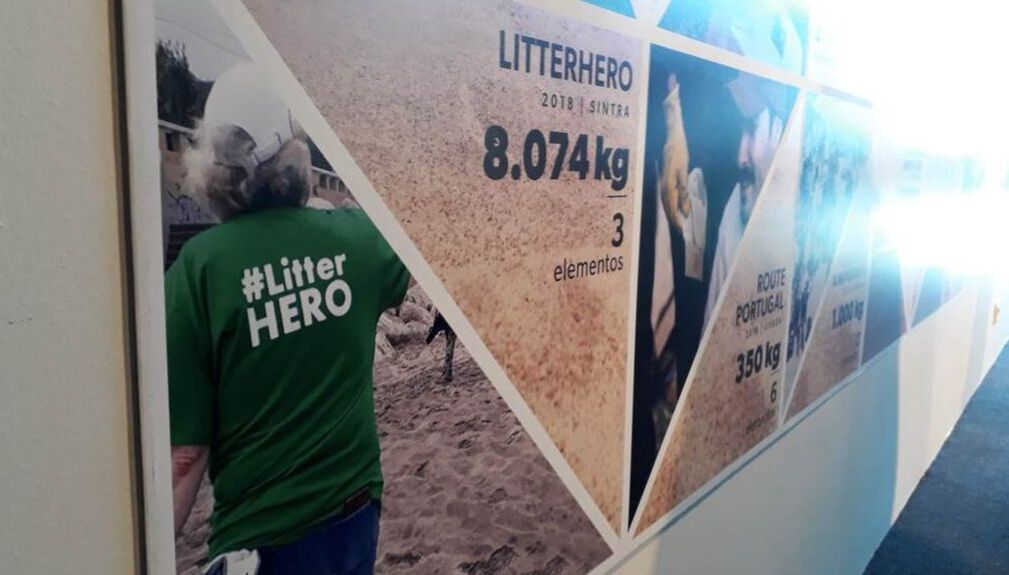


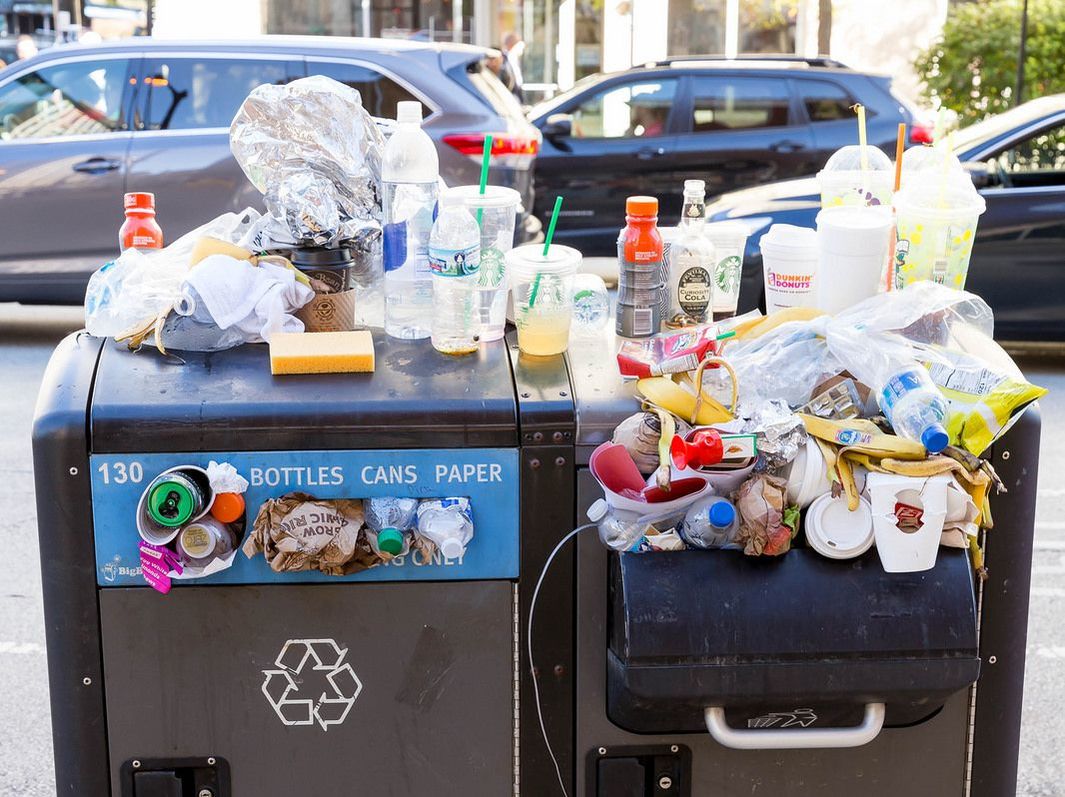
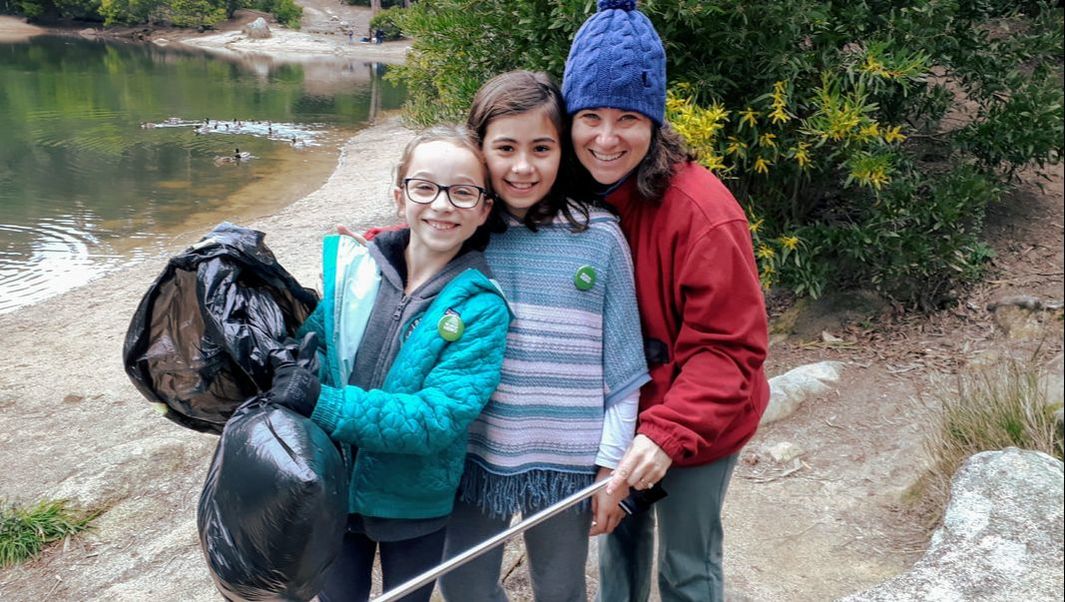
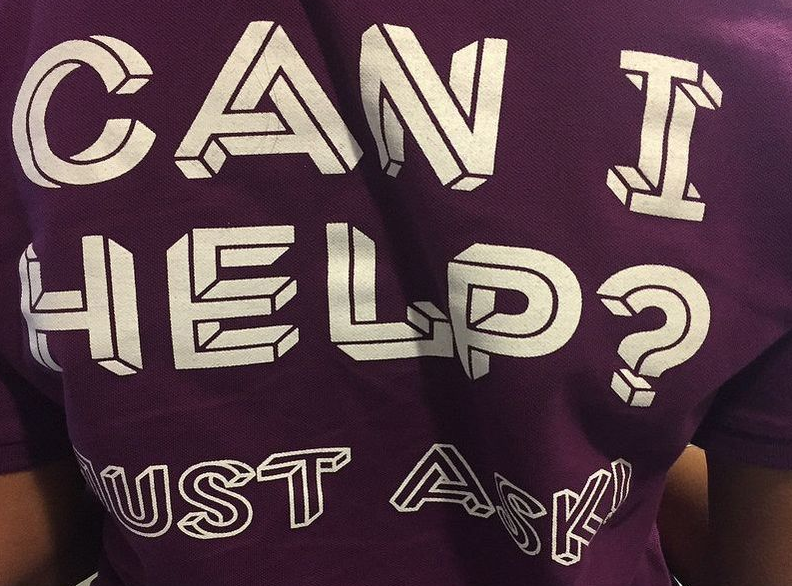
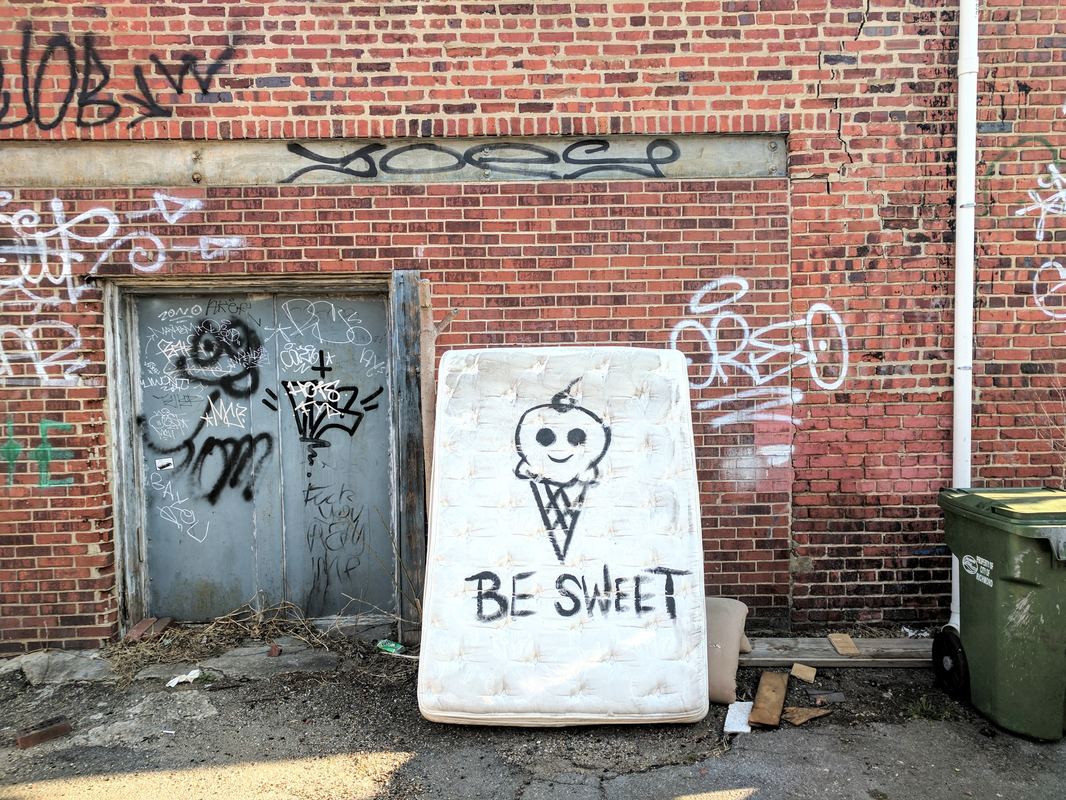

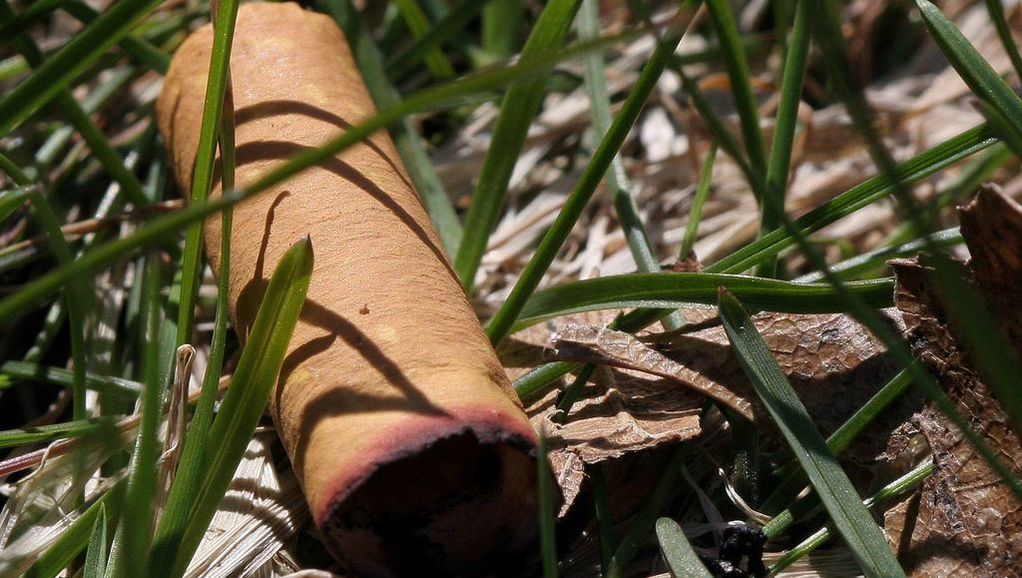


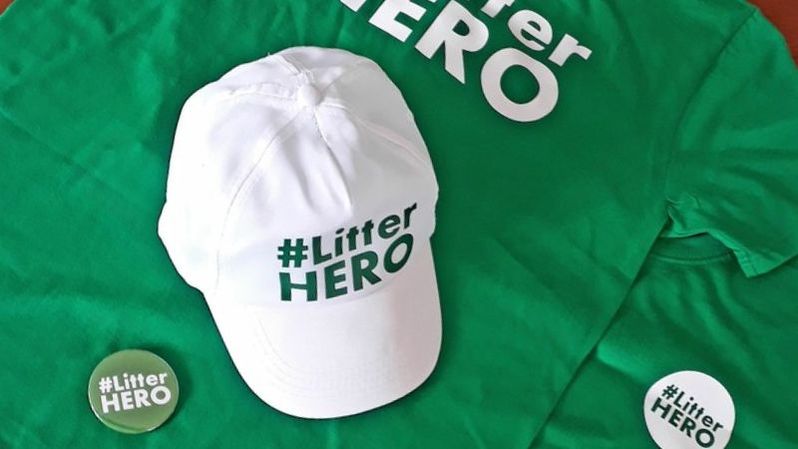
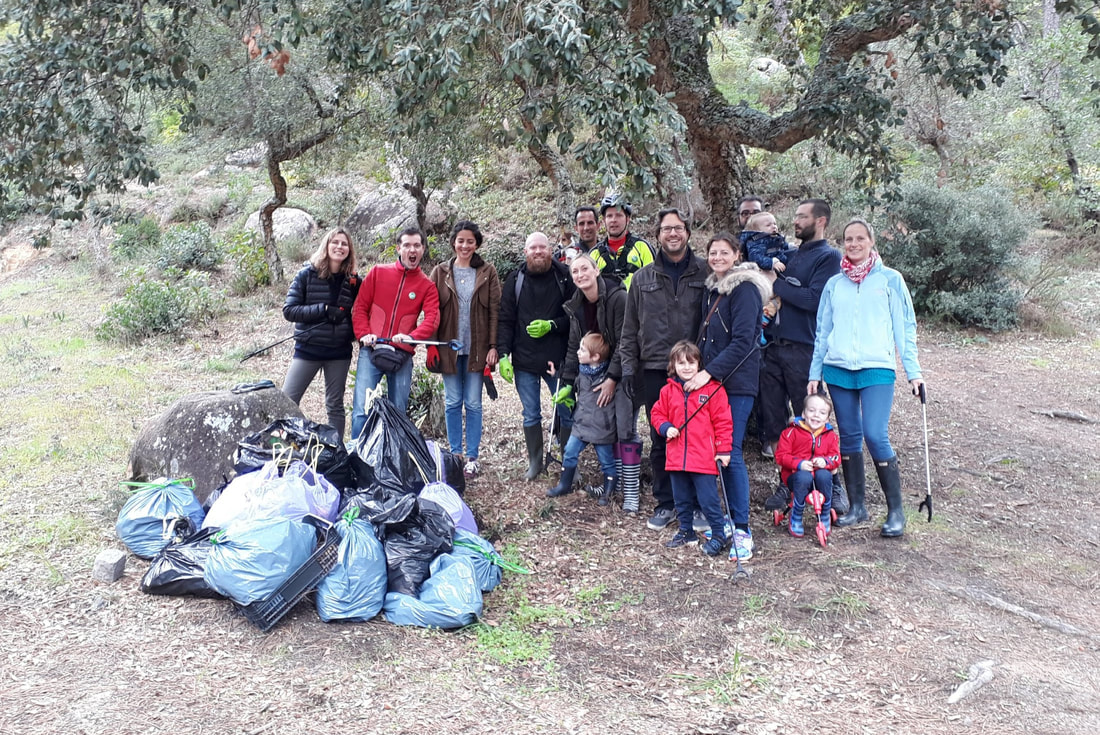
 RSS Feed
RSS Feed



